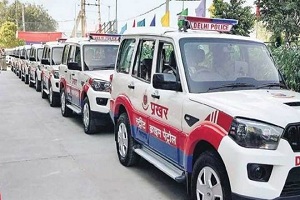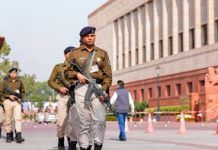The Delhi Police is in the process of equipping its beat cops and Police Control Room (PCR) vehicles with remote facial recognition systems. This way, both local cops and first responders will be able to scan people’s faces using remote devices and run them against Delhi Police’s databases, DCP (Operations and Communications) S.K. Singh said.
This won’t be Delhi Police’s first tryst with widespread use of facial recognition technology. It had earlier used the technology to screen crowds at Prime Minister Narendra Modi’s December 2019 rally in Delhi. Union Home Minister Amit Shah had declared in Lok Sabha that the Delhi Police had used its facial recognition system to trace 1,100 people who had caused riots in Delhi in February.
Singh, who is in charge of the 112 helpline, said that the Delhi Police is looking to use the Mobile Data Terminal (MDT), that all PCR vehicles are equipped with, to scan suspects’ fingerprints and faces on the field. The 8-inch HP tablet is already equipped with fingerprint verification to take PCR personnel’s attendance. “Suppose you find a suspect, just take his finger, send it to the system, and it will tell whether he is registered in a case or not,” Singh explained. The Delhi Police wants to build on top of that and arm it with facial recognition technology (FRT) for suspects on the street. “MDT doesn’t have facial recognition presently but in the future we will do,” Singh said.
However, even in the pilot stage, the process for implementing facial recognition has not been smooth sailing. “The plan is there but we are facing some problem[s] there because facial recognition requires huge bandwidth that we are not getting from 4G. So that is the issue. In case 5G is coming, then only we will be able to successfully implement the facial recognition. The limitation is the network,” Singh said.
Since the project is still in pilot stage — Phase I —, and has not been rolled out yet, the standard operating procedures are not in place. “We just did a pilot project just to ensure that the system is working. It [protocol and SOPs] will be in Phase II. … Phase II proposal has gone to the MHA and once it is [approved], then it will be [implemented],” he said. Phase I started on September 25, 2019. “In that, testing and all we did but the whole proposal will be conceptualised in Phase II,” Singh said.








